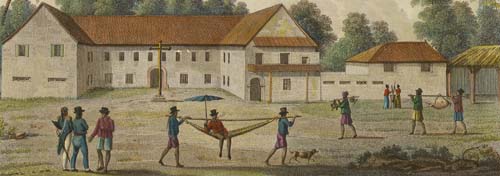Peninsulares

Spanish colonial term
Two terms were used to differentiate the origin of the Spaniards residing In the 19th century colonial Philippines. A Spaniard born in Spain was referred as a peninsular, meaning born in the Spanish peninsula. In contrast, a Spaniard born in the Philippines was referred as an insular if in the Philippines, or a Filipino if in Spain. That difference had consequences in the colonial apparatus, clearly in favor of the peninsulares who enjoyed certain privileges and could be assigned to posts of higher responsibility.
Since the independence of the Americas in the first two decades of the 19th century, the Spanish government begun to distrust the insulares of her colonies, since they were the ones who, as a social class, commanded the independence processes. In the Philippines, revolts for independence such as the Noval uprising in the 1830s had insulares as protagonists.
The term insular can be found as a way of self-identification on the side of a particular person. In the Marianas, CHamoru-Spanish mestizos could refer to themselves in certain official documents as español insular, meaning “Spaniard born in the islands” or “son of the country.” In such cases, the term was probably used to reinforce their stand before the bureaucracy of the colonial government, which was always represented by peninsulares.